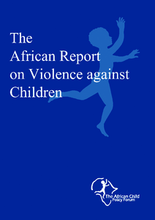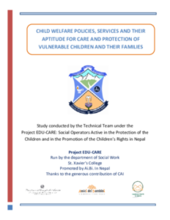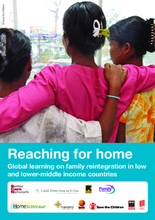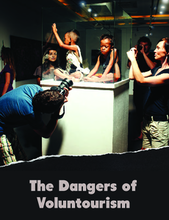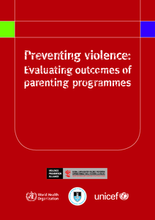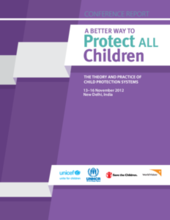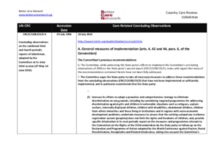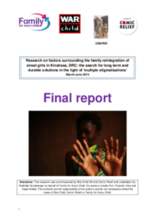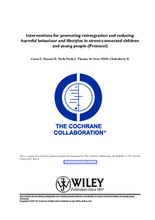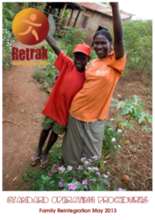Displaying 131 - 140 of 228
This report, from the African Child Policy Forum, is aimed at informing and accelerating pan-African, regional and national efforts to prevent and respond to violence against children.
The Technical Team under the Project “EDU-CARE: Social Operators Active in the Protection of the Children and in the Promotion of the Children’s Rights in Nepal” reports on the child care practices, policies, and programs currently in effect in the country.
This inter-agency, desk-based research aims to arrive at a clearer understanding of reintegration practices for separated children in low and lower-middle income countries. The research pulls together learning from practitioners and academics working with a range of separated children, such as those torn from their families by emergencies, children who have been trafficked or migrated for work, and children living in institutions or on the streets.
In this article for Prism Magazine, a publication of Evangelicals for Social Action, the authors ask challenging questions about the role of 'orphanage tourism', where Westerners visit or volunteer to work at a residential care center (orphanage) in the developing world, whether the trip is arranged by a tour or travel company, a nonprofit, or by a church.
This report seeks to increase understanding of the need for, and the process of, conducting outcome evaluations of parenting programmes in low- and middle-income countries. The guidance is aimed at policy-makers; programme planners and developers; high-level practitioners in government ministries; representatives of nongovernmental and community-based organizations; and donors working in the area of violence prevention.
This report of a major conference held in New Delhi in November 2012 entitled “A Better Way to Protect ALL Children: The Theory and Practice of Child Protection Systems”, encapsulates the substantive content of the presentations and related discussion; provides an analysis and documents the journey; and suggest an agenda, or at least direction, for future work on Child Protection systems.
This Country Care Review includes the care-related concluding observations on the third and fourth periodic reports of Uzbekistan, adopted by the Committee on the Rights of the Child at its sixty-third session (27 May–14 June 2013), as well as other care-related concluding observations, ratification dates, and links to the Universal Periodic Review and Hague Intercountry Adoption Country Profile.
This research looked at the factors affecting the family reintegration of girls in the Tshangu district of Kinshasa (DRC), an operational zone of the local NGO OSEPER, a partner of War Child for a 3-year project, seeking to address the needs of street-connected girls, including family reintegration.
This systematic review, co-registered within both the Cochrane and Campbell Collaborations, summarizes the evidence from empirical studies comparing the effectiveness of interventions that have been established to promote inclusion and reintegration, and to reduce harm, in street-connected children and young people (who work and/or live on the streets) worldwide. The review includes 11 studies, evaluating 12 interventions from high income countries. No studies from middle and low income countries are included due to inadequate quality of available studies.
Retrak, a UK-based organization working with street children in Africa, has published an excellent practical manual detailing its standard operating procedures (SOPs) for family reintegration for children working or living on the street. This document includes guiding principles of family reintegration, key steps, tools, monitoring and evaluation, as well as variations on the key steps of family reintegration.

